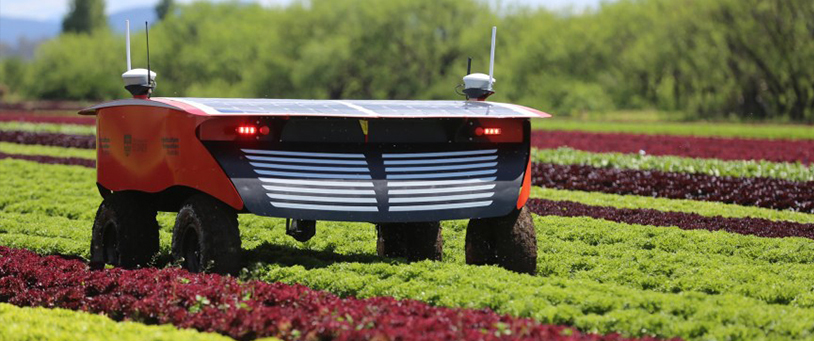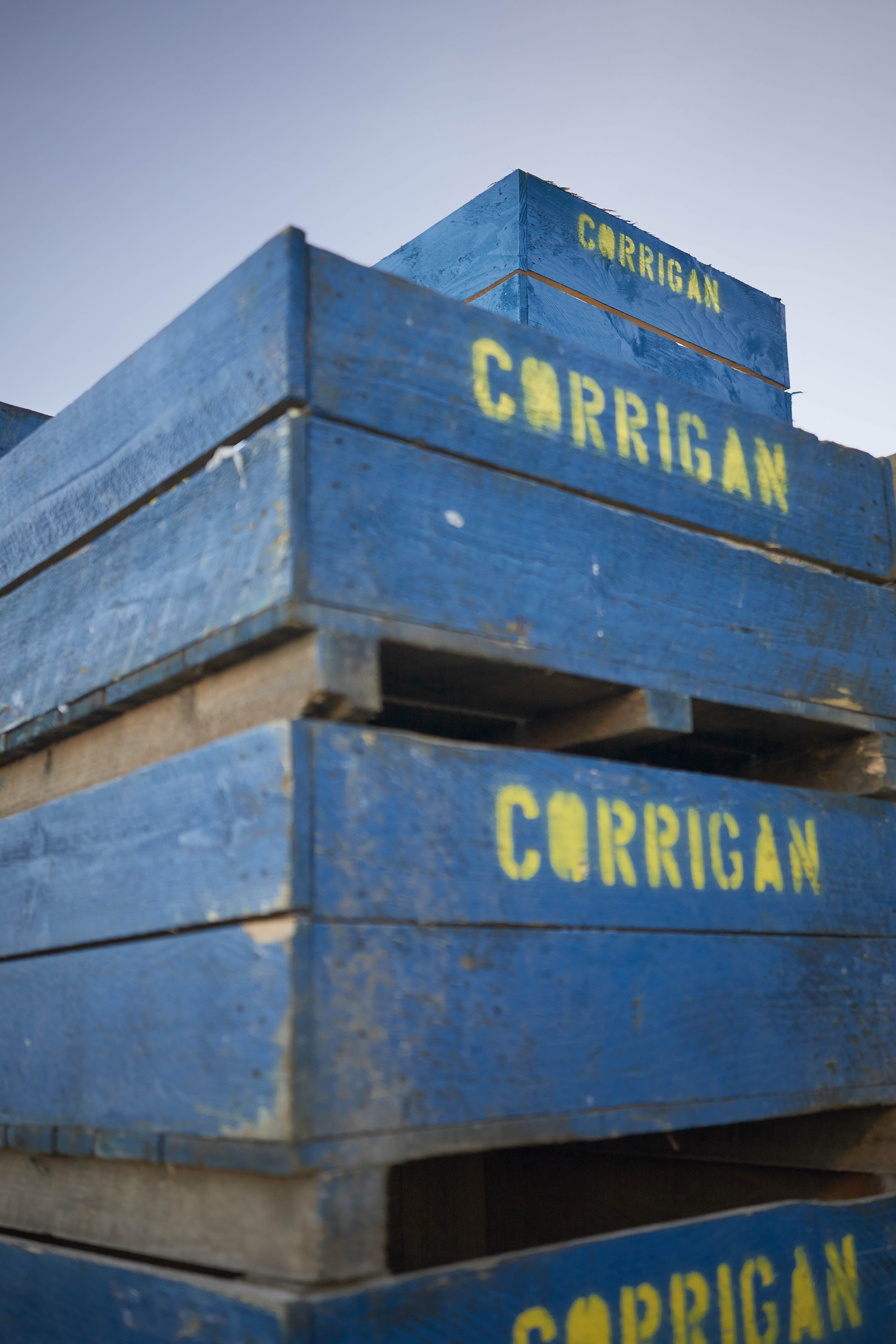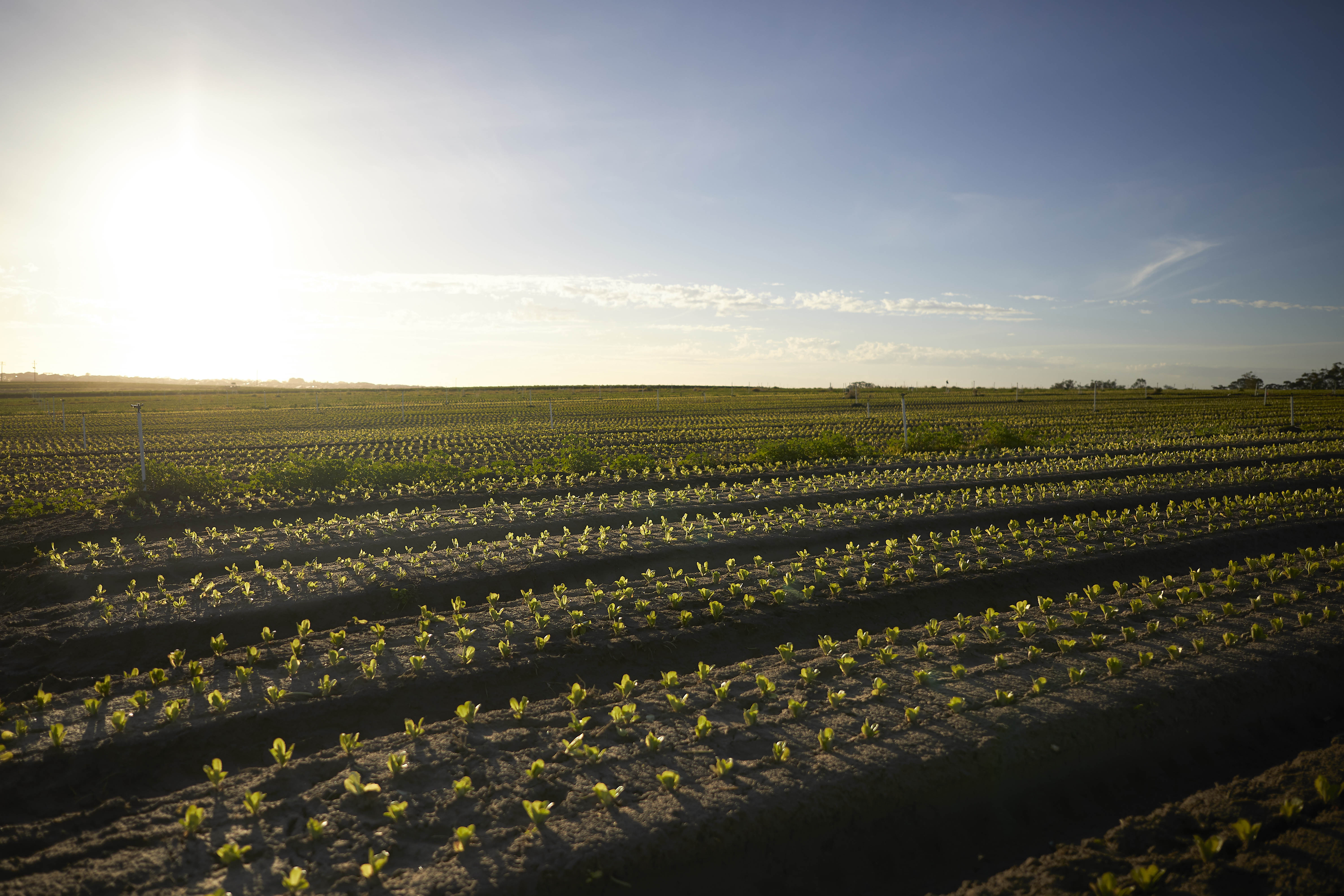
Dr Nicola Watts: Passion for fresh food and the community inspires Cluster leader
14 May 2018
RIPPA recaps: Levy-funded robot roams southern Australia
15 May 2018Stephanie Corrigan is a 28-year-old grower from Corrigans Produce Farms in Clyde, Victoria. We profiled him in the May/June 2018 edition of Vegetables Australia magazine.
Fast facts
Name: Stephanie Corrigan
Location: Clyde, VIC
Works: Corrigans Produce Farms
Grows: Celery, celeriac, cos lettuce, leeks, kale, silverbeet, pak choy, onions
How did you first become involved in the vegetable industry?
My family has been farming for five generations. The farms have always been run by men until my mother Deborah Corrigan started working on-farm. She encouraged me to work in the family business and I am now the sixth generation.
What does your role as manager at Corrigans Produce Farm involve, and what are your responsibilities?
I am, and have been, involved in many aspects of the farm. These include marketing, crop trials and monitoring, logistics, sales, staff management, planting management and some quality assurance (QA) work. It is important that I understand all aspects to farming.


What do you enjoy most about working in the vegetable industry and how do you maintain your enthusiasm?
I really enjoy the fact that we are providing such an essential service. Helping to feed the nation is pretty cool. I also enjoy that there are always new and different things to do working on the farm, which keeps me enthused. With jobs that are boring or repetitious, I can lose focus quickly.
My absolute favourite aspect of the industry is that I get to work both in the office and outside in the paddocks. Nothing beats being outside with nature.
What are the biggest challenges you face working in the industry, and how do you overcome them?
Like all things, there are always challenges that we need to face. They seem to change and sometimes multiply in the blink of an eye. But one challenge that currently comes to mind is finding and training efficient/effective employees. A lot of the younger generation have some sort of university background and have moved away from farming. I think there is a considerable number of young people who do not want to go to university and instead want to enter the workforce. Unfortunately, I feel like there is not a sufficient pathway for this group of people to see farming as a career.
In terms of training employees we overcome this by persistence, ongoing monitoring and creating different systems.
"One of the best parts about the industry is going to see your product that you have taken so much time to perfect, be sold at the market or in a supermarket. At this point you realise that you have done your job well knowing that someone wants to spend their money on a vegetable you supplied."
Where do you receive your on-farm practice advice and information from?
Growing up on the farm, I’ve had the opportunity to learn from family and senior employees. Most of what I know is learnt from my mother Deborah and my uncle, Darren Corrigan.
You attended the Women’s Industry Leadership and Development Mission in September 2017. What were the highlights of this mission?
Having a backstage pass to the Asian fruit and veg industry was a massive highlight for me. We export to Asia, so getting to understand the consumer expectations and how their operations work has really helped me to picture where our produce will slot into their market. We are currently exporting four different varieties of kale, celery, celeriac and silverbeet. Kale is very popular as an export line and we are getting really good feedback on our new kale – Finesse – which is exciting.

Is there anything that you are planning to incorporate onto the farm as a result of attending the tour?
Asia’s packing sizes are small, so we have had to review our current sizing and what would be appropriate and appealing to export customers.
In your opinion, what areas of research are important to the vegetable industry and your business?
Innovation, marketing and technology.
What new innovations, research and/or practices has your business implemented recently? What are you doing differently to other growing operations?
We invested in an automatic leek harvester and leek washer. This has given us a huge edge in the leek market due to the efficiencies and savings of labour.
One of the issues that a lot of farmers and seed reps have is locating different varieties and trials of vegetables out in the paddock. When you plant hundreds of thousands of plants every week in different areas, it is easy not to mark these areas correctly, or at all. We love to trial new varieties, so it’s important that you are able to find them.
You never know when you will find a new and exciting variety! By trialling that’s how I found our new variety of Kale – “Finesse.”
All our planting staff now follow my labelling system.

How does having a website and using social media assist your business?
We do have a website, however we find we have way more interest in our Corrigans Farm Facebook page. Facebook is so interactive; it’s a great way to reach out to our customers to show who we are, what we do and let them know what we have growing. We use it to promote any new lines we have. We are also active on Instagram and have over 2,500 followers.
Where do you see opportunities for growth in the Australian vegetable industry?
There are opportunities for growth in the Australian vegetable industry, however there are many obstacles we face. You would think with farming it would be the usual things like weather, loss of valuable farmland to urban encroachment, labour issues and pressure for low prices. It is all those things and more. On our farm we constantly seem to battle some new non-farming issues that keep coming up and taking valuable time away from farming. I believe that as farmer that we are largely ignored by governments and left to look after ourselves. This is fine; we have always done it. My fear is that if we are constantly thrown new obstacles, farmers will simply say it’s too hard and leave the farming industry.
Where do you see yourself in five years?
Still on the farm. There is nothing else that I would want to do. Hopefully I would have had a few successful business endeavours that aid the business and its profitability.
How do you think more young people and women could be encouraged to study and take up jobs in the vegetable industry?
Honestly, I do not know the answer to this – I just know it’s a problem. Whenever I tell anyone outside of the industry that I’m a farmer, they are in disbelief but also very curious and excited to hear what sort of things I get up to. This is usually followed by the question of ‘how does someone get into the farming industry?’ I’ve heard this question so many times! The stereotype of a farmer is an old man in overalls, and most young people are stuck with this image. If we could re-invent the stereotype somehow, I believe the younger generation would consider a future in the industry.
This grower profile first appeared in the leading magazine for the Australian vegetable industry, Vegetables Australia. If you’d like to subscribe to receive a new edition of Vegetables Australia in your mailbox every two months, use our online subscription form!

